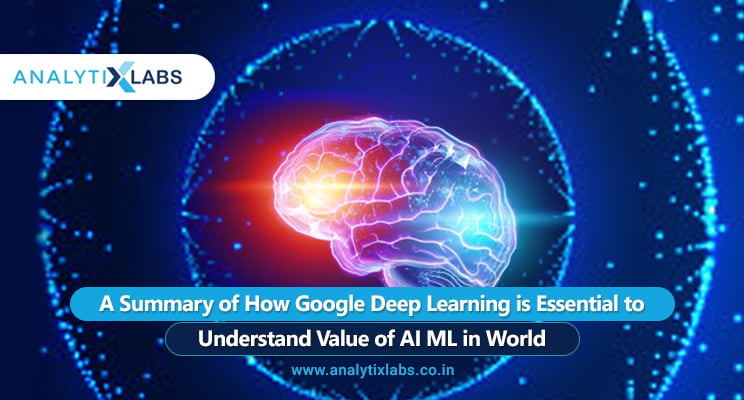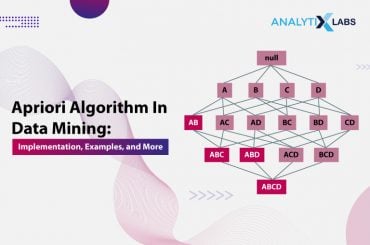
As we inch another day close to the completion of another amazing decade for science and technology, many of us are excited about the potential rise of Machine Learning engineers in the next decade.
Yes, Big Data and Automation technologies ruled the roost for most part of the decade between the years 2012 and 2018 to be precise – the 2020 and 2030 timeline is certainly going to be ruled by the engineers and analysts working on Deep Learning, AI and Machine Learning.
In the last 2 years, we have witnessed the serpentine rise of Google Deep Learning Course in India and abroad, indicating how impactful these capabilities would be in outright transformation of the way we do business, manage our appliances and interact online with our customers, employees, managers, partners and online friends. These interactions are endless, and what’s why I am emphasizing on the role of Google Deep Learning Course in this blog.
Key Developments in Google’s AI Systems
Google Deep Learning Course is a popular segment in the AI and Data Science community. Known for its timely updates and futuristic applications, Data Scientists find all the resources in Google library very relevant to their ongoing projects in Machine Learning.
In accurately ascertaining the current user trends and how Google adds value to the AI world, we find the various Deep Learning capabilities very useful. If you are learning Data Science with Google’s online courses, you can find answers to some of the most complex questions and equations currently keeping the data science engineers busy.
Some of these questions are—
- Is AI going to fully automate the processes in Manufacturing, Healthcare and Marketing, Sales, Customer Service? Or, do we still need human supervision?
- How can we measure the success and failure of AI and Machine Learning capabilities?
- Which AI tools and machine learning algorithms are best to augment human capabilities without putting them at risk of losing their jobs to Automation at various levels?
- What cost would employers and business owners have to bear in case there is ever a fall out between various AI platforms?
- Which Big Data companies and data analytics providers are best to work with and most ethical about data governance, privacy, security and AI ethics?
- What does Google’s Ethics roadmap look like for AI, Machine Learning, and the technologies related to Blockchain?
- Should we ever reward AI tools and platforms with more power, supervision and discretion? Can they be trusted beyond a certain level of human discretion?
All these are ongoing challenges that Google Deep Learning engineers are constantly working with.
What should Deep Learning Capabilities Truly Focus on?
Companies such as Google, IBM, Salesforce, Cisco, Amazon, Alibaba, Tencent and hundreds of other Big Data and Analytics companies are maneuvering their future roadmaps every quarter based on what potential they see in the AI ML markets. In building any AI ML platform, Google Deep Learning Course principles focus on these two aspirational metrics –
- Who are the customers, and what is their level of technology-driven Intelligent Quotient?
(we will delve into Technology IQ in our coming blogs soon)
- What is the value system you are using to build any AI machinery and what problem would it solve for you/your customers?
While working at a Google Deep Learning sites, you should be able to spend more time talking to people about identifying the right problem to be solved and making a IQ-driven effort to make Deep Learning capabilities truly accessible to the customers based on their behavior and experience related to machines and automation.
Will AI add Value?
This is the most viable question ever asked to AI analysts. The value of an AI ML project depends on the user and its machinery. The only message Google Deep Learning engineering teams would give is – Some solutions can be enhanced for future applications using AI. However, there are some solutions that can’t be controlled by AI, meaning, AI may not add any value to the existing solution, or may even degrade it in the short or long term.
So, AI’s value addition qualities can’t be answered without guidelines of data and analytics, playing out over a course of time, say 10-15 years, at least.
In your journey through Google Deep Learning Course, you should be able to make the judgment between “Rules of Machine Learning”, “Ethics in AI”, and the
Laws of Data Management, as applicable to the various countries and regions of the world.
With data and AI combining together to transform the digital ecosystem and outside, I am really excited about each human building his own AI identity in the perennially complex world of Augmented Intelligence.



![Deep Learning Interview Guide: Top 50+ Deep Learning Interview Questions [With Answers]](https://www.analytixlabs.co.in/blog/wp-content/uploads/2021/11/1-8.jpg)




8 Comments
Very nice post. I just stumbled upon your weblog and wanted
to say that I have truly enjoyed browsing your blog
posts. After all I’ll be subscribing to your feed and I hope you write again soon!
I know this site presents quality based posts and extra material, is there
any other web site which gives such things in quality?
awesome article,
I like reading it
Keep us updated with such information
Actually I read it yesterday but I had some thoughts about it and today I wanted to read it again because it is very well written.
I truly like you’re composing style, incredible data, thankyou for posting.
Wow, great blog.Much thanks again.
I’m glad I found this website, I couldn’t find any knowledge on this matter prior to it.